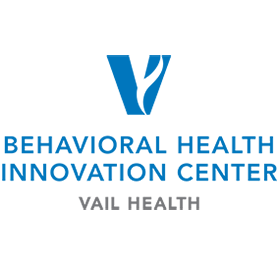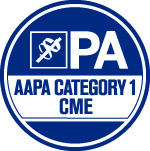
Novel Approaches to Behavioral Health Innovation: Psychedelics as Novel Treatments for Depression: Yes, They Work, But How Will They Work-Enduring

Psychedelic compounds—long stigmatized—have re-emerged in the last decade as the most promising new mental health treatments in a generation. An ever-growing outpouring of studies demonstrate that various psychedelics benefit a range of psychiatric conditions, including major depression, substance abuse, posttraumatic stress disorder and obsessive compulsive disorder. Among the classic psychedelics, the evidence of benefit is strongest for psilocybin—the psychoactive ingredient in magic mushrooms—as a novel treatment for depression. For this reason, this talk will focus on psilocybin and depression, using what we’ve learned thus far to explore key questions that must be answered for psilocybin and other psychedelics to be optimally deployed either through FDA approval or via state-level legalization. These questions include: 1) Are certain conditions more responsive to psychedelics than others and conversely are some psychedelics better for one condition than another?; 2) How can a drug that’s only in the body for a few hours produce therapeutic benefits that last for weeks to months (or longer); 3) Do the therapeutic effects of psychedelics result primarily from the psychological impact of the psychedelic “trip” or from the drugs’ direct neurobiological effects; 4) If the psychological effects of the psychedelic experience do contribute to long-term benefit, can the impact of the experience be heightened in ways that will extend the benefits of each dosing session; and 5) do psychedelics pose risks that mental health clinicians may not be prepared to recognize and resolve? Given the intense clinical need, public interest and likely clinical availability of psilocybin in the next half decade (either via FDA approval or state level legalization), gaining an understanding of these questions will be essential for anyone working in the mental health space.
This educational activity is designed to change learner competence and focuses on the following competency areas:
- The American Board of Medical Specialties: Patient care and procedural skills, Medical knowledge
- Nursing: Employ evidence-based practice
- Center for the Advancement or Pharmacy Education: Health and wellness, Interprofessional collaboration, Learner, Patient-centered care
- Pharmacy Technician Certification Board: Pharmacology
- Interprofessional Education Collaborative: Interprofessional Communication
- Diversity, Equity, and Inclusion: Engage in self-reflection, Value diversity in the clinical encounter
Intended Audience
This activity is designed for Psychologists, Pharmacists and Pharmacy Technicians, Physicians, Nurses, Physician Assistants, Social Workers, and other behavioral health clinicians.
Learning Objectives
As a result of participation in this educational series, members of the healthcare team will be able to:
- Explain why some depressive conditions appear to be more responsive to psilocybin than others and why we will likely never know whether one psychedelic more effective than others in the treatment of depression.
- Explain what current scientific evidence says about how it is possible for a drug that is only in the body for a few hours to produce such long-lasting therapeutic effects and how this evidence might be used to optimize the clinical benefits of psilocybin.
- Recognize, and describe mitigation strategies for, potential psychedelic-induced adverse events that may lead to negative therapeutic outcomes.
Charles Raison, MD, is the Mary Sue and Mike Shannon Chair for Healthy Minds, Children & Families and Professor, School of Human Ecology, and Professor, Department of Psychiatry, School of Medicine and Public Health, University of Wisconsin-Madison in Madison, WI. Dr. Raison also serves as Director of Clinical and Translational Research for Usona Institute, as Director of Research on Spiritual Health for Emory Healthcare and as Visiting Professor in the Center for the Study of Human Health at Emory University in Atlanta, GA. In addition, Dr. Raison has served as mental health expert for CNN.com for many years and is the host of the “Health is Everything” podcast. Dr. Raison is internationally recognized for his studies examining novel mechanisms involved in the development and treatment of major depression and other stress-related emotional and physical conditions, as well as for his work examining the physical and behavioral effects of compassion training. More recently, Dr. Raison has taken a leadership role in the development of psychedelic medicines as potential treatments for major depression. The recipient of several teaching awards, Dr. Raison has received research funding from the National Institute of Mental Health, National Center for Complementary and Alternative Medicine, and the Centers for Disease Control and Prevention. Dr. Raison received the Raymond Pearl Memorial Award from the Human Biology Association “in recognition of his contributions to our understanding of evolutionary biocultural origins of mental health and illness.” He was named one of the world’s most influential researchers by Web of Science for the decade of 2010-2019. With Vladimir Maletic he is author of “The New Mind-Body Science of Depression” published by W.W. Norton in 2017. Dr. Raison serves on the Scientific Advisory Board for the American Foundation for Suicide Prevention.
Policy on Faculty and Sponsor Disclosure
It is the policy of the University of Wisconsin–Madison Interprofessional Continuing Education Partnership (ICEP) to identify, mitigate and disclose all relevant financial relationships with ineligible companies* held by the speakers/presenters, authors, committee members, planners, and other persons who may influence content of this accredited continuing education (CE). In addition, speakers/presenters and authors must disclose any planned discussion of unlabeled/unapproved uses of drugs or devices during their presentation(s). For this accredited continuing education activity all relevant financial relationships have been mitigated and detailed disclosures are listed below.
*Ineligible companies are those whose primary business is producing, marketing, selling, re-selling, or distributing healthcare products used by, or on, patients. The ACCME does not consider providers of clinical services directly to patients to be ineligible companies.
Name | Role | Financial Relationship Disclosures | Discussion of Unlabeled/Unapproved uses of drugs/devices in presentation? |
| Casey Wolfington, PhD | Clinical Director/ Planning Committee Chair | No relevant relationships with ineligible companies to disclose | No |
Marshall Thomas, MD | Planner | No relevant relationships with ineligible companies to disclose | No |
Angelia Dreher, PharmD | Planner | No relevant relationships with ineligible companies to disclose | No |
Whitney Georges, RN | Planner | No relevant relationships with ineligible companies to disclose | No |
Tracey Branch, MSW | Planner | No relevant relationships with ineligible companies to disclose | No |
Robert Brown, CPhT | Planner | No relevant relationships with ineligible companies to disclose | No |
Charles Raison, MD | Planner, Speaker | Otsuka America Pharmaceutical (Independent Contractor - Consultant), | No |
Tania Engle, PA | Planner | No relevant relationships with ineligible companies to disclose | No |
| Eric Buxton | Peer Review | Johnson and Johnson International (Stock), Lexicon Pharmaceuticals, Inc. (Stock), Organon & Co. (Stock), Merck KGaA (Stock) | No |
 | In support of improving patient care, this activity has been planned and implemented by the University of Wisconsin–Madison ICEP and Vail Health. The University of Wisconsin–Madison ICEP is jointly accredited by the Accreditation Council for Continuing Medical Education (ACCME), the Accreditation Council for Pharmacy Education (ACPE), and the American Nurses Credentialing Center (ANCC), to provide continuing education for the healthcare team. |
Credit Designation Statements
American Medical Association (AMA)
The University of Wisconsin–Madison ICEP designates this enduring material for a maximum of 1 AMA PRA Category 1 Credits™. Physicians should claim only the credit commensurate with the extent of their participation in the activity.
American Nurses Credentialing Center (ANCC)
The University of Wisconsin–Madison ICEP designates this enduring material for a maximum of 1 ANCC hour.
Accreditation Council for Pharmacy Education (ACPE)
The University of Wisconsin–Madison ICEP designates this knowledge-based activity for 1 hour or 0.1 CEUs. Credit can be earned by successfully completing the activity, assessment, and evaluation. Credit will be provided to NABP CPE Monitor within 60 days after the activity completion.
UAN:
Pharmacist: JA0000358-9999-23-069-H99-P
Pharmacy Technician: JA0000358-9999-23-069-H99-T
Association of Social Work Boards (ASWB)
 | As a Jointly Accredited Organization, the University of Wisconsin–Madison Interprofessional Continuing Education Partnership (ICEP) is approved to offer social work continuing education by the Association of Social Work Boards (ASWB) Approved Continuing Education (ACE) program. Organizations, not individual courses, are approved under this program. Regulatory boards are the final authority on courses accepted for continuing education credit. Social workers completing this course receive 1.0 general, enduring continuing education credits. |
American Psychological Association (APA)
 | Continuing Education (CE) credits for psychologists are provided through the co-sponsorship of the American Psychological Association (APA) Office of Continuing Education in Psychology (CEP). The APA CEP Office maintains responsibly for the content of the programs. |
American Association of Physician Assistants (AAPA)
 | The University of Wisconsin–Madison ICEP has been authorized by the American Academy of PAs (AAPA) to award AAPA Category 1 CME credit for activities planned in accordance with AAPA CME Criteria. This activity is designated for 1.0 AAPA Category 1 CME credits. Approval is valid until 11/8/2025. PAs should only claim credit commensurate with the extent of their participation. |
Continuing Education Units
The University of Wisconsin–Madison ICEP, as a member of the University Professional & Continuing Education Association (UPCEA), authorizes this program for 0.1 continuing education units (CEUs) or 1 hours.
Available Credit
- 1.00 AAPA Category 1 CME
- 1.00 ACPE Contact Hours - Pharmacist
- 1.00 ACPE Contact Hours - Pharmacist Technician
- 1.00 AMA PRA Category 1 Credit™
- 1.00 ANCC Contact Hours
- 1.00 APA CE Credits
- 1.00 University of Wisconsin–Madison Continuing Education Hours
- 1.00 Approved for AMA PRA Category 1 Credit™
Click BEGIN to register
Registration for this activity can only be completed through the ICEP Learning Portal. Attendee registrations made through any other sites cannot be honored. UW-Madison ICEP is not able to refund fees paid through unaffiliated registration sites, such as eMedEvents.com, MedConfWorld.com, EventEgg.com, and 10times.com. Please report any unauthorized websites or solicitations for registrations to [email protected].
Accessibility
If you need anything to participate in this program, please contact [email protected].
Questions
For questions about registration, please email [email protected]. For general questions about this series, please contact Pam French at [email protected]
Required Hardware/software
Free, current version of Chrome, Firefox, Safari, or Microsoft Edge. Some older browsers and Internet Explorer could produce error messages or not display the content correctly.

 Facebook
Facebook X
X LinkedIn
LinkedIn Forward
Forward